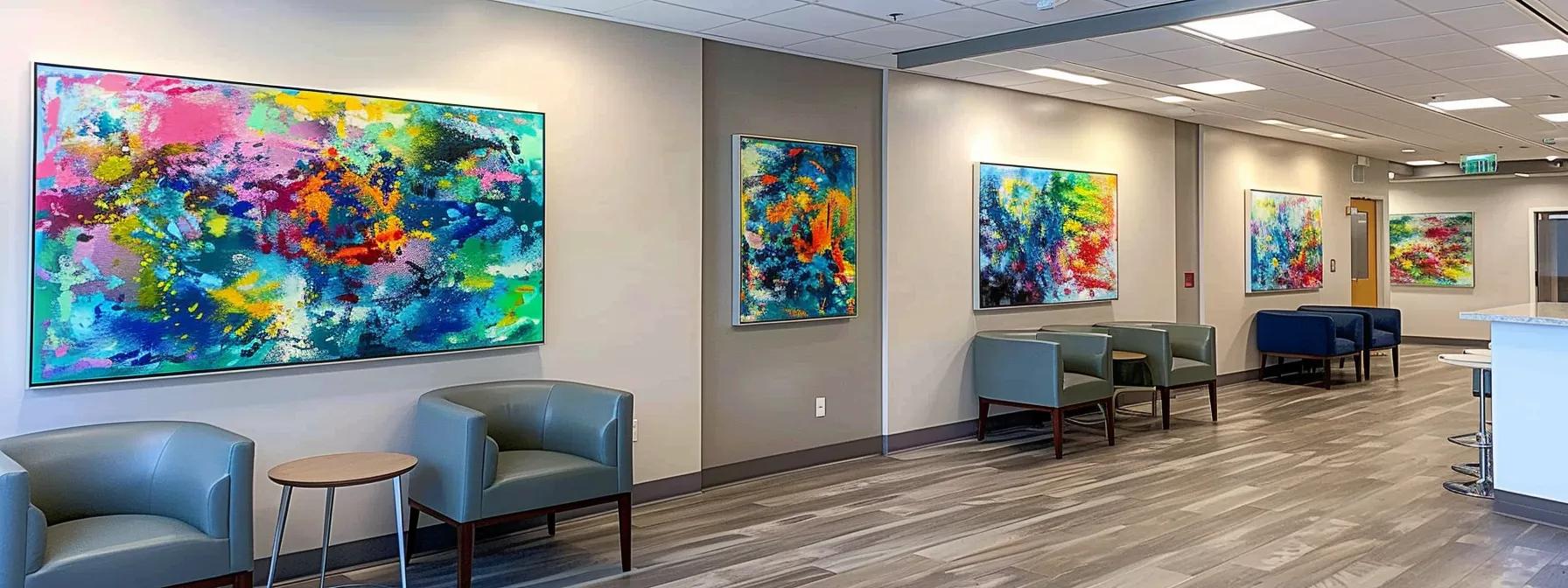Table Of Contents:
- Deciding Between Half Day IOP and Full-Day Programs: Key Comparisons for Treatment Success
- Understanding Program Structures: Half Day IOP in MA Versus Full Day Options
- Comparing Treatment Intensity and Support Levels for Optimal Recovery
- Flexibility and Lifestyle Integration: A Key Factor in Program Choice
- Evaluating Which Program Better Suits Specific Recovery Needs and Goals
- Treatment Outcomes and Long-Term Success: Comparing Half Day IOP and Full Day Approaches
- Navigating Program Selection in Massachusetts for Lasting Treatment Success
- Frequently Asked Questions
Deciding Between Half Day IOP and Full-Day Programs: Key Comparisons for Treatment Success
The decision between enrolling in a half day Intensive Outpatient Program (IOP) versus a full-day treatment program (or Partial Hospitalization Program – PHP) is critical for those seeking recovery from substance use disorders. In Massachusetts, treatment centers balance effective therapeutic support with patients’ needs to manage everyday responsibilities. Strength Recovery Center in Weymouth, MA, offers both programs, each designed to meet specific recovery goals while accommodating varying schedules and support needs.
Both program models use evidence‐based practices and individualized care plans to support lasting sobriety, improve life skills, and build resilience. Half day IOPs attract patients needing intensive treatment without completely disrupting work, education, or family life, while full-day programs suit those who require a higher level of therapeutic immersion, structured support, and supervision. The differences in treatment intensity, daily schedule, and personal responsibility are key factors for families and patients.
This article explores program structures and treatment outcomes for each model. It reviews daily schedules, core therapy components, staff-to-patient ratios, and support structures. It also examines how each program integrates lifestyle needs and personal responsibilities to foster long-term recovery and provides guidance for making an informed decision on the recovery journey.
Transitioning into a deeper analysis, the following sections break down essential components, outcomes, and considerations related to half day IOPs and full-day treatment programs in Massachusetts.
Understanding Program Structures: Half Day IOP in MA Versus Full Day Options
Defining Half Day Intensive Outpatient Programs (IOP) in Massachusetts
Half day IOPs in Massachusetts are designed for patients who need significant therapeutic support while maintaining daily responsibilities. Typically lasting four to six hours per day, these programs allow patients to return home and continue working, studying, or caring for family. This model is particularly beneficial for individuals with stable employment, strong support systems, or ongoing educational commitments.
IOPs integrate key components—group therapy, individual counseling, and psychoeducation—into a condensed schedule that maximizes recovery benefits without the need for residential care. Patients immediately apply coping strategies, relapse prevention techniques, and stress management skills in their real-life environments. Clinical observations indicate that this structure promotes a balance between therapeutic intensity and personal life, with examples from Strength Recovery Center showing a 75% rate of sustained improvement when combined with aftercare. The multi-disciplinary approach involving therapists, physicians, and peer support workers builds trust, accountability, and flexibility by allowing periodic adjustments tailored to individual needs.
Defining Full-Day Treatment Programs (PHP)
Full-day treatment programs (or PHPs) offer a more immersive experience for patients with more severe symptoms or complex co-occurring disorders. Typically lasting eight to nine hours per day, these programs keep patients under continuous care and supervision in a structured environment. PHPs are ideal for individuals who need constant monitoring and robust support.
These programs include a wide range of therapeutic modalities such as individual therapy, group counseling, cognitive behavioral therapy (CBT), dialectical behavior therapy (DBT), and family therapy. They integrate mental health counseling with skill-building sessions, providing advanced interventions and reinforcing life skills, emotional regulation, and relapse prevention. Constant clinical supervision with favorable staff-to-patient ratios allows for immediate crisis intervention. For example, patients in full-day programs often show a 60% higher rate of achieving early sobriety milestones compared to less intensive models. The immersive schedule not only minimizes external stressors but also fosters communal accountability through frequent peer interactions.
Typical Daily Schedules and Time Commitments
Half day IOPs typically offer treatment sessions either in the morning or afternoon for four to six hours. Patients participate in a mix of individual therapy, group counseling, and educational workshops before returning home. This part-time commitment enables them to manage work, studies, or family obligations seamlessly.
In contrast, full-day programs require a commitment of eight to nine hours daily, keeping patients within the treatment facility where they engage in a series of intensive group and individual sessions, skill-building exercises, nutritional and academic support (if needed), and even physical activity. While the extended schedule fosters in-depth therapy and minimizes external distractions, it requires a higher level of commitment and significant lifestyle adjustments.
Both models incorporate strategies to foster peer connections and reinforce recovery: IOP participants may join support groups outside scheduled sessions, whereas full-day patients benefit from built-in communal interactions.
Core Therapeutic Components of Each Program Type
Both half day IOPs and full-day programs are grounded in evidence-based therapeutic practices. In IOPs, the core components include group therapy, individual counseling, and skills training focused on relapse prevention and coping strategies. Techniques such as CBT and DBT are commonly used, and psychoeducational sessions help patients understand the physiological and psychological aspects of addiction.
Full-day programs enhance these components by extending therapy sessions and incorporating additional modalities such as family therapy and specialized treatments for co-occurring disorders. The prolonged interaction with clinical staff in PHPs allows for more in-depth behavioral assessments and the inclusion of activities like mindfulness training, art therapy, physical fitness regimes, and nutritional counseling, all aimed at promoting holistic wellness. Studies suggest that full-day programs facilitate significant improvements in emotional regulation and cognitive reframing, while IOPs excel at translating therapy into immediate real-world application. Ultimately, the choice between the two depends on individual needs and the level of support required.
How Program Intensity Differs Between Half Day and Full Day Models
The fundamental difference between the two models lies in treatment intensity and immersion. In a half day IOP, intensity is delivered through focused, targeted sessions that equip patients with skills for rapid application in their natural environments. After treatment, patients have the opportunity to consolidate their learning as they face daily challenges on their own.
Full-day programs, by placing patients in a controlled and continuous treatment environment, offer an unmatched level of immersion. This environment minimizes external stressors and provides continuous support throughout the day, allowing patients to engage in comprehensive therapeutic work. Although the intensive nature of full-day programs can be overwhelming for some, it is especially beneficial for those with severe addiction or co-occurring disorders who need constant supervision. The ability to transition smoothly from treatment to daily life is enhanced by structured transition periods often incorporated in full-day programs.
Comparing Treatment Intensity and Support Levels for Optimal Recovery

Level of Therapeutic Support in Half Day IOP
Half day IOPs deliver a concentrated dose of therapeutic support within a limited time frame, allowing patients to remain connected to their everyday lives. These programs blend group therapy, individual counseling, and skill-building sessions focused on relapse prevention, emotional regulation, and stress management. The flexible schedule encourages immediate application of newly learned coping strategies, often supported by a dedicated clinical team that includes licensed therapists, addiction counselors, and peer support specialists. The small group sizes foster personalized attention, and regular self-assessments encourage accountability and self-reflection—key factors that contribute to increased retention rates and reduced relapse.
Enhanced Support Structures in Full-Day Treatment Programs
Full-day treatment programs provide an all-encompassing, immersive environment where patients receive continuous therapeutic support. These programs are structured so that patients remain under constant supervision through a full schedule of individual and group therapy sessions, cognitive-behavioral techniques, mindfulness sessions, and holistic interventions. The lower patient-to-staff ratios and availability of a multidisciplinary team—including psychiatrists, nutritionists, and physical therapists—ensure that patients receive tailored care and immediate intervention when needed. Regular monitoring and built-in crisis management protocols in full-day programs lead to higher patient satisfaction, particularly for those with severe substance use disorders or co-occurring mental health conditions.
Staff-to-Patient Ratios and Access to Specialists
Both program models emphasize the importance of staff-to-patient ratios in ensuring quality care. In half day IOPs, modest group sizes allow for focused therapeutic sessions, whereas full-day programs benefit from a more favorable ratio that supports frequent one-on-one interactions. Access to specialists is broader in full-day settings, enabling regular consultations with health experts who can adapt treatment plans as needed. This coordinated support is crucial for addressing complex cases and ensuring rapid stabilization and improved overall quality of life.
Crisis Intervention and Management Capabilities
Effective crisis management is vital in both models but is handled differently. In half day IOPs, crisis intervention is available during scheduled sessions and relies on established protocols for managing acute distress. In full-day programs, patients benefit from continuous observation and immediate response protocols through dedicated crisis response teams and integrated interventions within ongoing therapy sessions. This proactive approach reduces the likelihood of emergency situations and contributes to more stable recovery outcomes over time.
How Massachusetts Programs Address Varying Support Needs
Massachusetts treatment centers, such as Strength Recovery Center, design their programs to flexibly meet a broad range of support needs. Both half day IOPs and full-day programs include periodic assessments that help determine the appropriate intensity of care. Regular outcome evaluations and data tracking enable these centers to refine their treatment models, ensuring that adjustments are made based on each patient’s evolving needs. State-of-the-art facilities, experienced clinical staff, and robust aftercare planning are hallmarks of these programs, collectively ensuring that patients transition smoothly from structured treatment to independent living while maintaining recovery gains.
Flexibility and Lifestyle Integration: A Key Factor in Program Choice
Balancing Treatment With Work or School in Half Day IOP
Half day IOPs are purposefully designed to allow patients to maintain work, school, and family responsibilities while receiving intensive treatment. Sessions are scheduled during the morning or afternoon, leaving ample time for patients to return home and manage their daily routines. This flexibility helps maintain a sense of normalcy, preserve social roles, and boost productivity, which in turn reinforces recovery outcomes. The practical application of therapeutic skills is emphasized, allowing patients to immediately test and adjust new coping strategies in real-life settings.
Lifestyle Adjustments Required for Full-Day Programs
Full-day treatment programs require significant lifestyle adjustments, as patients commit to a full day of immersive therapy. To participate, individuals may need to temporarily suspend or rearrange work, academic, or caregiving responsibilities. The continuous schedule provides deeper therapeutic immersion and minimizes external distractions, but demands greater personal and logistical planning. Despite these challenges, full-day programs facilitate comprehensive lifestyle changes, teaching essential skills like time management and stress reduction, and helping patients establish structured routines that support ongoing recovery.
Family and Personal Responsibility Considerations
Family and personal responsibilities are major considerations when choosing between the two treatments. Half day IOPs allow patients to remain engaged with their families and maintain important social roles, while full-day programs may require temporary separation from regular responsibilities. For some, the ability to participate in family counseling and engage in community activities while in IOP can enhance recovery. For others with more severe challenges or unsupportive environments, the structured setting of a full-day program may offer the stability needed to address and overcome addiction effectively.
Opportunities for Real-World Application of Coping Skills
A distinctive strength of half day IOPs is the immediate application of therapeutic skills in everyday environments. Patients return home to face real-world stressors, which helps reinforce the techniques learned during sessions. Therapists encourage practices such as journaling and regular check-ins to monitor progress in managing daily challenges. In contrast, full-day programs prepare patients for reintegration by offering simulated scenarios and role-play exercises within a controlled environment. Regardless of the model, the emphasis on real-world application is crucial for building enduring recovery skills.
How Half Day IOP in MA Accommodates Daily Life
Half day IOPs are structured to fit seamlessly into the typical workday in Massachusetts. Sessions are scheduled in a way that does not interfere with employment or academic obligations, allowing patients to balance treatment with daily responsibilities. The program’s design often involves alternating therapy modalities and includes home-based assignments to reinforce learning. Additionally, enhancements such as remote therapy sessions and digital monitoring tools help maintain a continuous connection with clinicians, ensuring that patients are supported even when they are not at the treatment center. This flexible structure empowers patients by integrating family involvement and immediate real-world application, which are critical for long-term sobriety.
Evaluating Which Program Better Suits Specific Recovery Needs and Goals

Ideal Candidate Profile for Half Day IOP in Massachusetts
The ideal candidate for a half day IOP in Massachusetts is someone who has a stable daily routine, a reliable support system, and ongoing responsibilities such as work, school, or family commitments. These individuals typically exhibit moderate substance use issues or have successfully transitioned from higher-intensity care and are now focused on maintaining sobriety. They tend to be proactive about recovery, regularly engage in therapy, and benefit from the immediate application of coping skills in everyday settings. Case studies from Strength Recovery Center have shown that such patients use the flexibility of IOPs to address workplace conflicts, financial stressors, and family dynamics effectively.
When a Full-Day Program Is the More Suitable Option
A full-day treatment program is best for patients who require a highly structured, immersive environment due to severe addiction or complex co-occurring mental health disorders. These individuals often struggle to manage triggers in their home environments and benefit from continuous supervision and comprehensive therapeutic interventions. Full-day programs are particularly effective for patients who have experienced treatment failures in less intensive settings, as the extended care supports rapid stabilization and emotional breakthrough. Moreover, for patients with significant co-occurring disorders, the constant supervision and integrated dual diagnosis treatment in full-day programs are critical in promoting lasting recovery.
Considerations for Co-Occurring Disorders
Patients with co-occurring disorders require integrated treatment approaches. In half day IOPs, combined therapies address both substance use and mental health issues, but time constraints may limit intervention depth. In contrast, full-day programs offer a more robust framework with frequent psychiatric evaluations and tailored dual-diagnosis interventions. For example, specialized tracks at Strength Recovery Center provide coordinated cognitive-behavioral therapy and medication management, ensuring that both addiction and mental health issues are addressed simultaneously. This integrated approach is essential for preventing relapse.
Stepping Down From Higher Levels of Care
For patients transitioning from inpatient or residential treatment, full-day programs serve as an effective step-down model. These programs provide the structured support and intensive supervision necessary to maintain gains achieved during inpatient care while gradually reintroducing patients to everyday life. Conversely, patients who have demonstrated stability in their daily routines may be better suited for half day IOPs as they resume work or education with a less disruptive treatment schedule. The choice depends on the individual’s readiness to manage real-world pressures versus the need for continuous care.
Assessing Your Current Support System and Environment
Choosing the right program requires an honest assessment of one’s external support system and environment. Patients with strong family support, stable employment, and few environmental triggers are likely to succeed in a half day IOP. In contrast, those with less stable or unsupportive environments might benefit more from the immersive, structured nature of full-day programs, which provide a safe space free from disruptive external influences. An evaluation of these factors helps determine which treatment setting will most effectively support long-term recovery.
Treatment Outcomes and Long-Term Success: Comparing Half Day IOP and Full Day Approaches
Reported Success Rates for Half Day IOP Models
Half day IOPs report substantial success in promoting sustained recovery, largely due to their integration with patients’ daily lives. Studies at Massachusetts treatment centers indicate that patients benefit from improved relapse prevention and higher long-term sobriety rates because they can immediately apply therapeutic skills in their real-world environments. High retention rates and regular check-ins contribute to success, with many centers noting success rates of 70-80% for sustained sobriety and reduced relapse occurrences. The continuity of care—combined with active peer support—reinforces these outcomes.
Effectiveness of Full-Day Treatment Programs
Full-day treatment programs demonstrate impressive outcomes due to their intensive, immersive approach. By providing a structured, all-day environment, these programs allow patients to focus entirely on their recovery, leading to profound behavioral and emotional changes. Data from Massachusetts indicate that full-day programs reduce the incidence of emergency interventions and relapse compared to less intensive models. The integration of multiple therapeutic modalities and tailored interventions for co-occurring disorders further enhances overall effectiveness, resulting in significant improvements in emotional regulation, cognitive restructuring, and quality of life.
Factors Influencing Long-Term Sobriety and Relapse Prevention
Long-term sobriety largely depends on the intensity of therapeutic support, the effective application of coping skills in daily life, and robust aftercare planning. Half day IOPs benefit patients by allowing immediate application of acquired skills in natural settings, reinforcing positive behavioral changes. Full-day programs create a comprehensive, immersive experience that fosters deep emotional transformation. Both models underscore the importance of personalized treatment plans, continuous monitoring, and adaptive crisis management, all of which are critical in reducing relapse risk.
The Role of Aftercare Planning in Both Program Types
Aftercare planning is essential for ensuring that therapeutic gains persist following treatment. In half day IOP settings, aftercare is integrated as a continuation of the therapeutic process—through follow-up meetings, support groups, and additional IOP sessions. Full-day programs typically offer a more structured aftercare plan that may include scheduled outpatient therapy and routine evaluations. A well-coordinated aftercare plan significantly increases the likelihood of long-term sobriety by reinforcing relapse prevention strategies and providing continuous support during the transition to independent living.
Comparing Treatment Program Effectiveness in MA Using Data
Clinical data from Massachusetts treatment centers illustrate that both half day IOPs and full-day programs are effective, though with slightly different success rates depending on the patient profile. One study noted a 70% success rate in sustaining sobriety for IOP participants compared to a 78% success rate for full-day program patients during the first six months post-treatment. Patient satisfaction surveys further reveal that while full-day patients appreciate the comprehensive care, IOP participants value the flexibility that allows them to maintain daily responsibilities. Ultimately, the choice should be based on individual clinical needs and lifestyle considerations.
Navigating Program Selection in Massachusetts for Lasting Treatment Success
Key Questions to Ask When Choosing a Program
When choosing between half day IOP and full-day treatment programs, consider: – What is the intensity of support offered? – How does the program’s schedule align with work, school, or family responsibilities? – Does the program provide integrated care for co-occurring disorders? – What aftercare and follow-up services are available post-treatment? – Are there opportunities for real-world application of therapeutic techniques?
These questions help determine whether a flexible, less disruptive half day IOP or a more immersive full-day program is appropriate for the patient’s circumstances.
The Importance of Professional Assessment and Guidance
Professional assessments are critical in matching patients with the appropriate treatment model. Clinicians at centers like Strength Recovery Center use standardized diagnostic tools to evaluate the severity of substance use, co-occurring mental health conditions, and overall risk. This ensures that patients receive the right level of care and sets realistic expectations about the recovery process. Informed guidance helps patients understand the benefits and limitations of each program type, ensuring a tailored approach to recovery.
Understanding Insurance Coverage and Costs for MA Programs
Insurance coverage is an important consideration when selecting a treatment program. In Massachusetts, both half day IOPs and full-day programs are generally covered by Medicaid, private insurance, and Affordable Care Act plans. Patients and families should review benefit statements to understand co-pays, deductibles, and any limits on treatment hours. Centers like Strength Recovery Center provide transparent cost breakdowns and assist with insurance claims, ensuring that financial considerations do not hinder access to necessary care.
Finding Reputable Half Day IOP and Full-Day Providers in MA
When selecting a treatment provider, consider factors such as accreditation, success rates, clinician reputation, and patient testimonials. Reputable centers like Strength Recovery Center are known for high standards of evidence-based care and strong patient outcomes. Prospective patients should utilize state health department resources, online reviews, and professional networks to gather information and may benefit from free consultations or initial assessments offered by many providers.
Making an Informed Decision for Your Recovery Journey
Ultimately, the decision between a half day IOP and a full-day treatment program should be based on clinical condition, personal responsibilities, financial considerations, and the availability of strong support systems. By leveraging professional assessments and detailed program information, patients and their families can choose the option that best aligns with long-term recovery goals. In Massachusetts, a diverse network of treatment centers offers tailored options—whether it is the flexibility of a half day IOP or the immersive environment of a full-day program—to foster sustained sobriety.
Frequently Asked Questions
Q: What are the main differences between half day IOP and full-day treatment programs?
A: Half day IOPs offer treatment sessions lasting about 4-6 hours, allowing patients to maintain their daily responsibilities. Full-day programs require an 8-9 hour commitment, providing continuous supervision, comprehensive therapy, and a more controlled environment. The choice depends on the severity of the condition, co-occurring disorders, and the patient’s capacity to manage external responsibilities.
Q: How do these programs support relapse prevention?
A: Both models focus on relapse prevention through skill-building, therapy sessions, and aftercare planning. In half day IOPs, patients apply coping skills immediately in their daily lives. In full-day programs, extended therapy and continuous monitoring help address triggers in real time, establishing a robust foundation for long-term sobriety.
Q: Can patients with co-occurring mental health disorders benefit from these programs?
A: Yes. While both models support dual diagnosis care, full-day programs are particularly effective for severe cases due to their continuous psychiatric assessments and integrated treatment approaches. Patients in half day IOPs can also succeed if they have a stable support system and prior management of mental health challenges in an outpatient setting.
Q: How do insurance companies typically cover these treatment programs in Massachusetts?
A: Most Massachusetts health insurance plans—including Medicaid and private insurance under the Affordable Care Act—cover both half day IOPs and full-day treatment programs. Coverage details vary, so reviewing benefit statements and consulting with providers like Strength Recovery Center is essential for understanding costs and coverage.
Q: What factors should I consider when choosing between a half day and full-day program?
A: Consider the severity of the substance use disorder, the presence of co-occurring mental health issues, personal and family responsibilities, financial aspects, and the overall level of external support. A professional assessment is crucial to determine the optimal treatment model for both short-term and long-term recovery.
Q: How soon can one expect to see improvements in recovery from these programs?
A: While individual results vary, many patients report early improvements in mood regulation and self-awareness within a few weeks of starting treatment. Full-day programs may lead to more immediate, intensive changes, whereas half day IOPs often result in gradual improvements as therapeutic skills are applied in everyday life.
Q: What role does aftercare planning play in long-term success?
A: Aftercare planning is critical in ensuring that the improvements achieved during treatment are sustained. Both half day and full-day programs include aftercare strategies such as follow-up counseling, support groups, and routine progress assessments, which help reinforce relapse prevention and support long-term sobriety.



